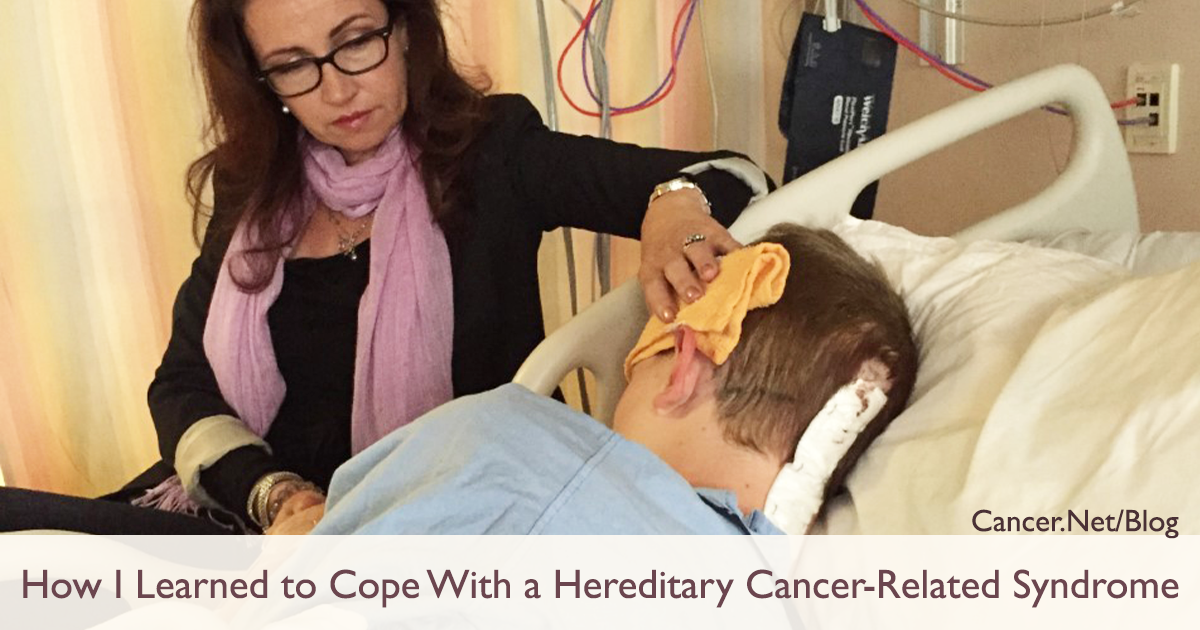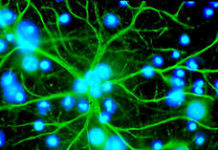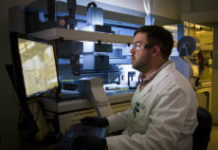
Leona deVinne is a VHL patient and caregiver and knows the impact of the disease firsthand. Leona is a professional certified coach and facilitates the VHL monthly Patient/Caregiver and Parents calls at the VHL Alliance. She recently developed the VHL Medical Coaching program to provide VHL medical practitioners with a very robust skill set to support VHL patients more fully.
“They’re in his eyes.”
“They’re what?” I said.
As she examined my son’s eyes, the doctor said to me, “He has tumors in his eyes.”
I’d just finished telling the ophthalmologist that my mom was blind in 1 eye from the medical condition called von Hippel-Lindau syndrome (VHL) that I share with my son Josh. VHL means we are missing a tumor suppressor gene and are at a high risk of growing tumors in 10 places within our bodies. So far, my son and I both have brain tumors. I also have spinal tumors and a tumor on my pancreas.
But no one since my mom has had eye tumors—until now.
The first thing that went through my mind was, “Why not me?” I was checked just before him. I was sitting there with my pupils dilated, yet I missed the bullet and he got 2; 1 tumor in each eye.
So, how do we navigate through these tough moments?
I want to start by saying: I think I have an amazing life. I am very blessed and am committed to squeezing every bit of goodness out of each gooey day. But living with this condition can be horrible, and I’m often not happy about how things go.
I don’t, however, hate this condition. This condition, for one thing, is on every strand of my and my son’s DNA, and I love every bit of his DNA. I’m learning to love mine, too. So I can’t hate it.
I do feel down and sad sometimes, but I don’t let those feelings take over any more than I let joy or happiness rose-color things. Someone once asked me how I do this without getting depressed. There are several tools I’ve picked up along the way to help me deal with the horribleness that can come with living with VHL. These tools might help you, too.
1. I feel the feels—all of them.
I feel so guilty that it’s my son who has the eye tumors and not me. It’s something I feel, whether it’s logical or not. But when I feel guilty, I hold that emotion apart from me. I recognize it as a feeling, and a feeling is worthy of time and space. But I don’t over-identify with it.
2. I tell people how I feel.
I confide in people who I trust with my soul. That means they will hold the space I need to be me, whatever that looks like—me feeling guilty, sad, or laughing that my pupils still look huge. They love me, and I trust them enough to share my feelings.
3. I try to stay in the moment.
I live where my feet are. I can’t “future surf” to what could happen. It could be good or bad, and rarely if we feel overwhelmed do we go to the happiest of endings. So instead, I don’t go anywhere. I stay in that moment.
4. I tell myself the truth.
I try to be as accurate as possible. I had Josh not knowing that I carried a dominant gene, which meant I had a 50% chance of “giving” it to my kids. VHL also means we have a 90% chance of developing tumors and cancer in a wide variety of places in our bodies.
When stuff like this happens, I feel guilty because my reactive, protective mom brain goes to beat me up and says, “I gave this to him.” It literally takes my breath away.
But the truth is, I didn’t “give” him anything. I catch myself and say to myself, with kindness, “It was passed on to him. It’s not your fault.” I keep going back to that truth when my brain tells me that any of this is my responsibility.
5. I try to find one thing every day to be grateful for.
And usually, I find way more than one. My big, beloved son is such a rock. He takes things in stride, is infinitely brave, is always so beautifully kind, and has the best sense of humor even in these situations. We also have an amazing doctor who started Josh’s first treatment that day. She’s amazing.
6. I don’t fight it.
I do not fight the existence of my tumors or his. I don’t like that we have them. I’m so disappointed and at times devastated, especially by his. But I cannot put on the boxing gloves and battle with this. I will always lose.
So I surrender. That’s my greatest source of peace. I realize that I cannot do anything to change it. But I can give in and walk alongside this stuff. I can incorporate it into my life and take it along for the ride. The less I fight it, the smaller it becomes. The less I worry about it, the more content I am. Instead, I choose to focus on all the other fullness in life.
7. I let go of what I can’t control.
We all complain about things. I complain about my wrinkles and my cellulite. But when things happen—like if my income is less 1 month or my dishwasher breaks—I don’t care.
I take it in greater stride. I am healthy, can see, can run, can work, and can do so many things that many can’t. I want to soak in gratitude for the grace that has been lathered onto me and given to me by so many.
And finally, when things get hard, I make a mental list of what I can control and what I can’t. I have a saying that helps me let go of the gritty prices on the “can’t control’ side, which usually sounds like, “I’ll have everything I need.” I don’t always know what that looks like, and bad things have definitely happened. But I have always made it, and I continue to trust that.
8. I turn my attention to what I can control.
The list of what I can control is usually longer than I might first think and simpler than I might imagine. The “I can control this” list usually starts with me being more present and really being with the people I love. I become more spiritual. I joyfully exercise, and I become more intentional overall.
Life—even the hard parts—is so rich in meaning and gifts. I am most often in awe by the goodness I’ve been given. This sense of joy is a source of nearly constant surprise.
This part of the journey has just begun. But I hold onto hope that my son and I can navigate this with the grace, trust, and wisdom that always accompanies us. I just need to remember that it’s there.







